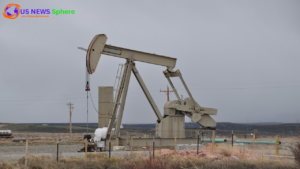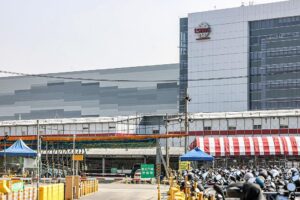Tariff turmoil is crushing U.S. companies, triggering widespread uncertainty, slashed earnings forecasts, and rising fears of a recession in 2025. As sweeping trade policies take effect, industries from automotive to tech are being forced to pull back, while Wall Street watches the economy edge into unstable territory.
Why Are U.S. Companies Withdrawing Forecasts in 2025?
Major U.S. companies are halting buybacks, reducing forward guidance, and scaling back growth initiatives. These drastic moves are largely due to the Trump administration’s reintroduction of steep import tariffs—particularly the 25% tariff on foreign automobiles and Chinese electronics.
- General Motors stopped a $4B share repurchase program.
- PepsiCo cited “rising input costs” and lowered earnings outlook.
- Delta and JetBlue no longer offer financial guidance for the year.
- Snap refused to give forward revenue estimates amid ad spending declines.

How Tariffs Are Affecting the U.S. Economy Overall
The first quarter of 2025 saw a GDP contraction of 0.3%, the worst in three years. Trade deficits are rising as companies rush to stockpile goods ahead of new tariffs. Business investments are shrinking. The labor market remains tense, and consumer confidence is now at its lowest level since 2020.
- The Federal Reserve’s Beige Book noted “pervasive uncertainty” across all regions.
- Inflationary pressure has returned due to price increases on imported goods.
- Small and mid-sized enterprises (SMEs) report declining profitability.
Global Ripple Effects of U.S. Tariff Policy
China’s retaliatory tariffs—raising duties to as high as 84% on U.S. goods—are exacerbating the crisis. Export-dependent businesses, especially in agriculture and machinery, are cutting jobs and halting new contracts.
- International trade volumes have dropped 9% compared to Q1 2024.
- U.S. farmers have seen soybean exports decline by over 12% this year.
- Stock indices like the S&P 500 and Nasdaq saw double-digit dips in April 2025.
Market Voices: What Executives and Analysts Are Saying
According to Business Insider, over 20 major corporations have revised their guidance or pulled it entirely. Goldman Sachs CEO David Solomon emphasized that these tariffs “are forcing U.S. firms to tighten their belts,” warning that prolonged uncertainty could suppress growth into 2026.
This wave of caution from top CEOs signals a deep-seated fear across corporate America: an unstable business climate will hamper innovation, slow hiring, and eventually ripple into the consumer economy.
Conclusion: What Happens Next?
If the current trajectory holds, we may be entering a slow-motion economic crisis. While the Fed maintains a neutral stance, corporate America is flashing red signals. The deep uncertainty caused by tariff turmoil is already dampening economic momentum, and its long-term effects could be devastating unless mitigated by stable policy or multilateral trade reforms.
Policymakers and business leaders must now balance short-term political goals with the long-term health of the American economy. If not, the ripple effects may drag the country into a prolonged recession.
[USnewsSphere.com / bi.]





